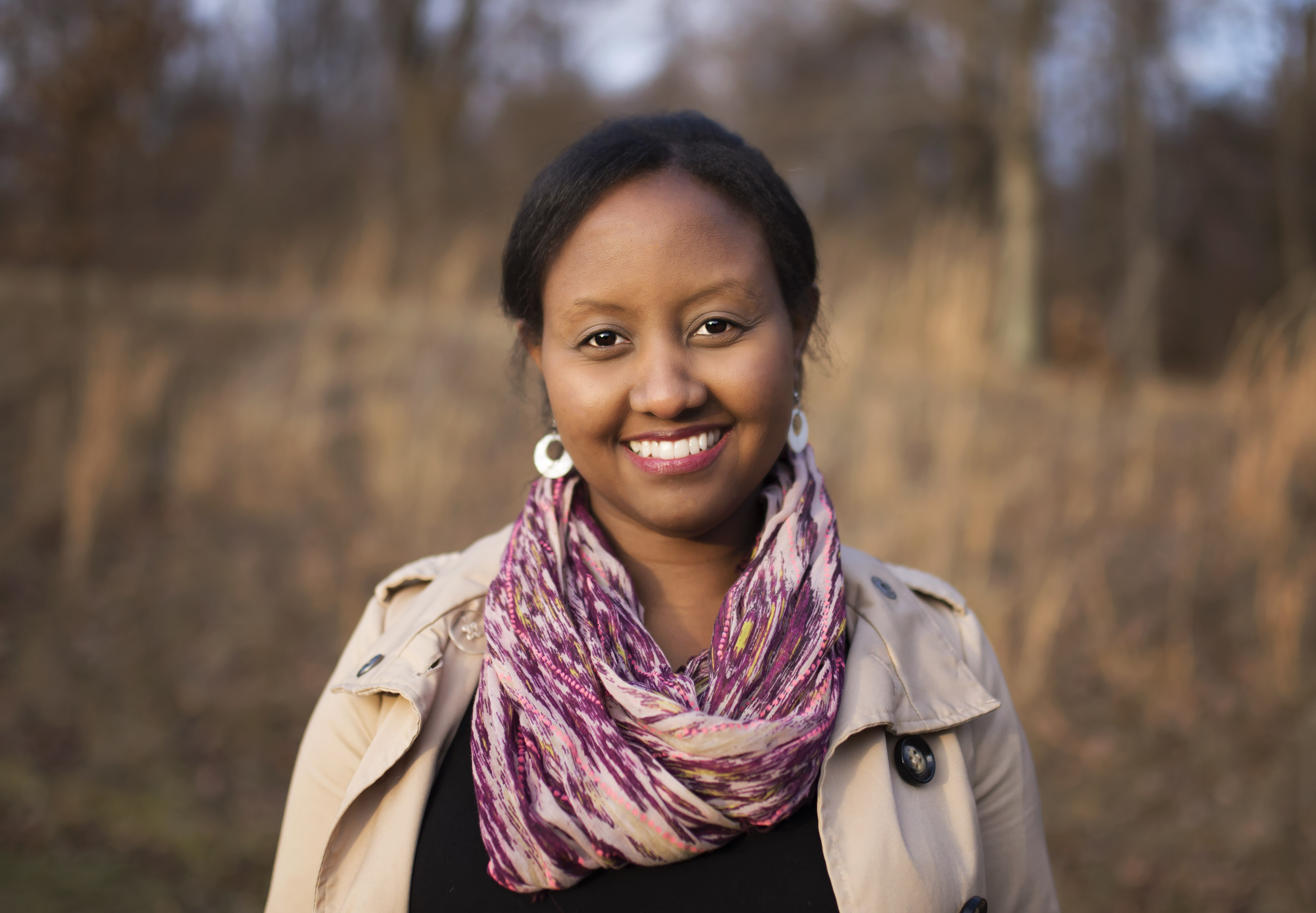Why Me?
After going to Urbana three times, it’s safe to say Baraka Mikanagu was a fan. Actually, she was a fan after the first one, Urbana 03, especially when she heard Geri Rodman’s message on overcoming idolatry. But going back to Urbana in 2006 and 2009 only reinforced its impact on her life. Their messages continue to challenge and inspire her, especially the realization that Christ came not only to reconcile humanity’s vertical relationship with God but also the horizontal relationships between different people.
At the same time, questions lingered in Baraka’s mind.
Growing up in Burundi, she’d witnessed firsthand the escalating tensions between the Hutus and Tutsis that would eventually plunge the neighboring country of Rwanda into genocide, with hundreds of thousands being killed. She vividly recalls hiding in the hallway of her home with her family while a flurry of gunshots filled the air outside. Not long after, her family left the country because of her father’s job. When she said goodbye to her relatives, she knew, even as a child, that this wasn’t a temporary separation. This was forever.
From her new home in Angola, Baraka heard stories about the turmoil in Rwanda and couldn’t help wondering, Why me? Why had God allowed her and her family to escape all of it while these dangers were a daily reality for people she knew and loved?
Why Pharmacy?
As she went to college and became a pharmacist, those questions remained. What was God’s plan in all of this? Even though Urbana helped Baraka in so many ways, none of the conferences provided satisfying answers to those gnawing whys. If anything, they only generated more questions. As she listened to a lawyer for the International Justice Mission share her testimony at one Urbana, she particularly began to wonder how God could use her vocation.
“When I was going to college, my understanding as an international student was that I was going to school to get a good job to provide for myself and my family,” Baraka said. “The big goal was to get the best degree and best job possible. None of that really had anything to do with seeking God’s glory through my profession.”
After her last Urbana, God seemed silent for a long time, and Baraka continued her work in the pharmacy field. “Urbana made me start to think about how pharmacy could possibly be used within God’s global purpose, but I honestly could not connect the dots for the longest time,” she admitted.
But then she went through a vocation and calling study at her church. “I felt like God was calling me to do something else and move out of the state that I was living in. I started praying and fasting about that. God started answering,” she said.
God’s Answer
The Lord brought the Urbana Connections Hall to Baraka’s mind, specifically her conversation with representatives from Wycliffe Bible Translators. She looked up their website and began brainstorming. She could always go to linguistics school and serve overseas as a translator, she figured. The thought that God could use her current vocation never crossed her mind. She’d looked into it before and had come up with nothing.
But as Baraka surveyed the different opportunities to serve, she came across a healthcare tab. Curiosity piqued, she clicked on it without thinking. The first thing she saw was: “Pharmacist needed.”
“I was immensely surprised. That was a total God moment,” Baraka said. “It showed me how big God is and how he can make a place for you.”
She wants others, especially fellow international students and immigrants, to know that God can do the same for them, saying, “Most American missionaries are Caucasian. I don’t think we have a chance to see a lot of people that look like us going through the process. I hope my story makes others realize they do have a place in missions.”
Baraka is currently serving in Papua New Guinea at a clinic for both Bible Translation staff and the surrounding villages.
“So many different things brought me here,” Baraka realized. “Urbana obviously gave me a broader understanding of missions. It’s more about participating in redeeming creation and also seeking justice for the world and the least of these. It also gave me a picture of what heaven could look like and made me want to work toward that with every fiber of my being, to work alongside God wherever he places me.”

